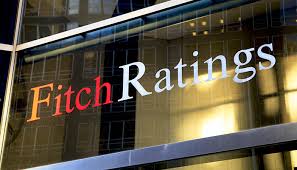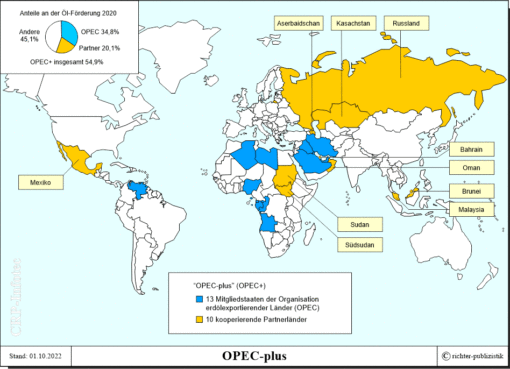Fitch Ratings – Dubai – 02 Aug 2023: Fitch Ratings has placed Iraq’s Sumer Commercial Bank PSC’s (SCB) Long- and Short-Term Issuer Default Ratings (IDRs) of ‘CCC+’ and ‘C’, respectively, and Viability Rating (VR) of ‘ccc+’ on Rating Watch Negative (RWN).
The RWN reflects the ban recently imposed by the Central Bank of Iraq (CBI) that prohibits SCB from dealing in US dollars due to compliance issues related to US dollar international transfers made in 2022. The ban restricts SCB’s capacity to repay its US dollar-denominated customer deposits and any other US dollar obligations, while allowing the bank to deal in any other international currencies and in Iraqi dinar.
Fitch believes that the ban will severely weaken SCB’s business, risk and financial profiles. Similar to other Iraqi banks, SCB’s business model is highly dependent on its capacity to cover its clients’ US dollar needs. This reflects the high dependence of Iraq’s economy on US dollar-denominated oil revenues.
We have assigned all of SCB’s VR scores negative outlooks (except for operating environment, risk profile and asset quality) and downgraded the bank’s business profile to ‘ccc’ from ‘ccc+’, risk profile to ‘ccc+’ from ‘b-‘, and earnings and profitability to ‘ccc-‘ from ‘ccc’ to signal the risk that the ban and its consequences could weaken the bank’s business, risk and financial profiles. We have also downgraded the bank’s funding and liquidity score to ‘ccc+’ from ‘b-‘ to indicate our view that due to the ban, the bank may become unable to fulfil its US dollar-denominated contractual obligations in full compliance with their original terms.
KEY RATING DRIVERS
SCB’s IDRs are driven by its standalone strength, as indicated by its VR, which reflects the bank’s high compliance risk, weak operating environment, limited franchise, unstable business model and weak profitability. The VR also reflects the bank’s high capital and liquidity ratios. The ‘C’ Short-Term IDR is the only option mapping to a ‘CCC+’ Long-Term IDR.
Compliance Risk Constrains Ratings: The bank’s business model inherently entails high compliance risk, notably due to its high reliance on US dollar-denominated transactions, as evidenced by the CBI’s ban.
Weak Operating Environment: Fitch’s assessment considers the economy’s high dependence on the cyclical oil sector, the deep involvement of the state in supporting growth, weak governance and regulatory frameworks, a fragile business environment and an undeveloped banking sector exposed to high compliance and foreign-currency risks. Fitch forecasts Iraq’s real GDP growth to be a low 1.7% in 2023 (following a high 7% in 2022) due to lower oil revenues and lack of reforms to improve the non-oil sector and fiscal structure.
Limited Franchise: If not lifted soon, the CBI’s ban on SCB from dealing in US dollars is likely to durably and negatively affect the bank’s business profile. SCB is a privately-owned bank with minimal domestic market shares, no competitive advantages and limited distribution capabilities. SCB’s business model is highly sensitive to domestic economic and political instability because the bank operates only in Iraq. Its loan book is small and liquid assets are high due to limited adequate business opportunities in Iraq and limited appetite for credit risk.
Sovereign Risk; Business Opportunities: The high share of cash and balances at the CBI on SCB’s balance sheet (end-1H23: 66% of total assets) drives our assessment of the bank’s asset quality. However, cash and balances at the CBI can be volatile depending on local business opportunities and are highly sensitive to sovereign risk. Interbank placements (11%; mostly ‘BB’ rating category) are mainly with foreign-correspondent banks. Loans (only 8%) have little impact on the assessment of asset quality.
Weak Profitability: The CBI’s ban will put pressure on SCB’s profitability in 2023, which will remain volatile due to domestic economic and political instability. Operating income originates mainly from non-interest income (2022:90%). Large non-to-low-interest-earning liquid assets, low-yielding loans and a high cost/income ratio including CBI fines, weigh on SCB’s profitability. The operating profit/average total assets ratio is weak (2022: 0.4%). SCB’s IQD7.8 billion net loss in 6M23 was due to losses from foreign-currency re-evaluation, CBI fines and other operating expenses.
High Capital Ratios: SCB’s capital adequacy ratio (end-2022: 190%) is substantially above the regulatory minimum of 12%. The tangible leverage ratio is very high (end-1H23: 77%). If the ban remains in place for an extended period or if large fines are imposed as a result of the identified compliance shortcomings in SCB’s US dollar business, this could considerably erode the capital ratios, which have otherwise benefited from the structure of SCB’s balance sheet, with a large proportion of liquid assets, small lending volumes and limited appetite for credit risk.
Liquid Balance Sheet: Fitch believes that as a result of the ban, SCB’s US dollar liquidity could become insufficient for the bank to fulfil its US dollar obligations in accordance with their original terms. The gross loans/customer deposits ratio is low (end-2022: 48%) due to limited lending. SCB’s excess liquidity is mostly kept as cash or placed with the CBI. Liquid assets represented a high 77% of total assets and covered 3.8x customer deposits at end-1H23. SCB is not reliant on volatile wholesale funding, particularly government deposits or CBI borrowings.
RATING SENSITIVITIES
Factors that Could, Individually or Collectively, Lead to Negative Rating Action/Downgrade
Fitch expects to resolve the RWN on SCB’s IDRs and VR once a robust assessment of the impact of the ban on the bank’s business, risk and financial profiles (including its ability to repay US dollar-denominated obligations in line with contractual terms) is possible, or not later than within the next few weeks.
Fitch would downgrade the ratings if the ban materially weakens the bank’s business, risk and financial profiles. In particular, Fitch could downgrade SCB’s IDRs to ‘RD’ (Restricted Default) and its VR to ‘f’ if the CBI’s intervention impedes the bank’s ability to service its US dollar-denominated contractual obligations in full compliance with their original terms, as this would represent a material reduction in terms compared with the original contractual terms of banks’ financial obligations.
In addition, Fitch could also downgrade or withdraw the ratings if the information necessary to perform a complete assessment is insufficient.
A deterioration in the domestic operating environment would lead to downgrades of the VR and Long-Term IDR.
Factors that Could, Individually or Collectively, Lead to Positive Rating Action/Upgrade
SCB’s IDRs and VR could be removed from RWN and affirmed if Fitch obtains sufficient evidence that the bank can continue to operate without incurring a significant deterioration of its financial profile as a result of the ban, in particular if the ban is promptly and fully lifted and the regulator confirms that severe fines or sanctions are unlikely to be imposed on the bank. In addition, an affirmation would require robust evidence that SCB is able to maintain sufficient market and customer confidence, as evidenced by significant US dollar inflows from depositors, easing pressure on the bank’s US dollar liquidity.
An upgrade of the bank’s Long-Term IDR and VR would require an improvement of the operating environment, which would be contingent on a significant diversification of the economy, and stronger governance and business climate in Iraq. An upgrade of the bank’s Long-Term IDR and VR would also require a meaningful improvement in the bank’s franchise and business model. Fitch views these developments as highly unlikely.
SCB’s Government Support Rating (GSR) of ‘no support’ reflects Fitch’s view that government support cannot be relied on given the bank’s limited systemic importance.
An upgrade of the bank’s GSR is unlikely as it would require strengthening of the bank’s franchise to the extent it would become systemically important within the Iraqi banking sector.
VR ADJUSTMENTS
The operating environment score of ‘ccc+’ is below the ‘b’ category implied score due the following adjustment reasons: size and structure of economy (negative) and financial market development (negative).
The business profile score of ‘ccc’ is below the ‘b’ category implied score due to the following adjustment reasons: business model (negative) and market position (negative).
The capitalisation and leverage score of ‘b-‘ is below the ‘bb’ category implied score due to the following adjustment reason: risk profile and business model (negative).
BEST/WORST CASE RATING SCENARIO
International scale credit ratings of Financial Institutions and Covered Bond issuers have a best-case rating upgrade scenario (defined as the 99th percentile of rating transitions, measured in a positive direction) of three notches over a three-year rating horizon; and a worst-case rating downgrade scenario (defined as the 99th percentile of rating transitions, measured in a negative direction) of four notches over three years. The complete span of best- and worst-case scenario credit ratings for all rating categories ranges from ‘AAA’ to ‘D’. Best- and worst-case scenario credit ratings are based on historical performance. For more information about the methodology used to determine sector-specific best- and worst-case scenario credit ratings, visit https://www.fitchratings.com/site/re/10111579
REFERENCES FOR SUBSTANTIALLY MATERIAL SOURCE CITED AS KEY DRIVER OF RATING
The principal sources of information used in the analysis are described in the Applicable Criteria.
ESG CONSIDERATIONS
Fitch has assigned SCB an ESG Relevance Score of ‘5’ for its governance structure to reflect the high compliance risks revealed by the ban. These compliance deficiencies and their consequences are highly relevant and a key rating driver that has a significant impact on the ratings, as reflected by the RWN on the bank’s IDRs and VR.
Unless otherwise disclosed in this section, the highest level of ESG credit relevance is a score of ‘3’. This means ESG issues are credit neutral or have only a minimal credit impact on the entity, either due to their nature or the way in which they are being managed by the entity. For more information on Fitch’s ESG Relevance Scores, visit www.fitchratings.com/esg
Source: Fitchrating, 2. August 2023








Comment here